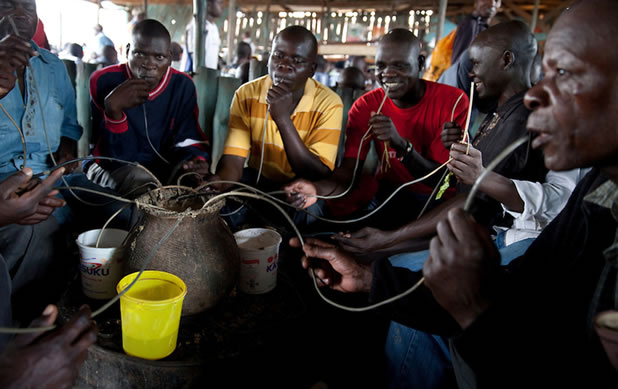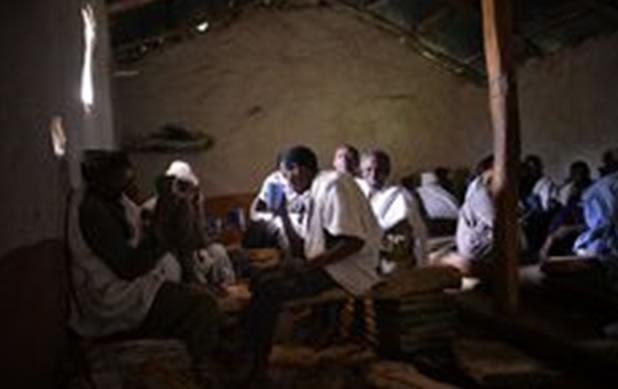December, 2003 Proverb: “The beer is difficult to strain.” – Anyuak (Ethiopia)
The beer is difficult to strain. (English)

Anyuak (Ethiopia) Proverb
Background, Explanation, Meaning and Everyday Use
Beer plays an important role in traditional African societies. Among the Anyuak people in the Gambella Region in Ethiopia it is used during sacrifice for some and at the time of reconciliation feasts for others. It also serves as it does in modern Western societies as a necessary item in social bonding when people get together to have a drink. Among the Anyuak this last use is very common. This proverb uses the way beer is made especially the straining process that separates the grain from the liquid beer to teach a social point. In the traditional use of the proverb the woman who was making beer told the visitor that the beer was hard to strain. Though she had beer, it was not for the uninvited visitor. The meaning is: Don’t get involved in affairs of others if not invited to do so. The point is not to presume to involve yourself in a group not your own unless invited to do so. Culture is about where you stand in relationship to your kin, fellow villagers, and the stranger.
Biblical Parallels
 In Mark 7:26, a Syro-Phoenician woman approaches Jesus, the Jewish teacher, with a request that he help her very sick daughter. Jesus’ first response illustrates the cultural restrictions operative between various cultural groups in First Century Palestine. He wished to restrict himself to people of his own cultural traditions. However, the faith of the Syro-Phoenician crossed the boundaries of the different cultures and was the proper invitation for Jesus to involve himself in her life and difficulties.
In Mark 7:26, a Syro-Phoenician woman approaches Jesus, the Jewish teacher, with a request that he help her very sick daughter. Jesus’ first response illustrates the cultural restrictions operative between various cultural groups in First Century Palestine. He wished to restrict himself to people of his own cultural traditions. However, the faith of the Syro-Phoenician crossed the boundaries of the different cultures and was the proper invitation for Jesus to involve himself in her life and difficulties.
Often in the gospels it was faith that serves as the invitation to others to cross cultural boundaries. See the Roman centurion in Matthew 8:5: “The centurion replied, ‘Sir, I am not worthy to have you under my roof; just give the word and my servant will be cured.’” See the Greek pilgrims wanting to meet Jesus through Philip (John 12:20).
Contemporary Use and Religious Application
In today’s world we often hear expressions like: the clash of civilizations, ethnic cleansing, North-South divide, developed and developing nations, Muslim and Christians, rich and poor, etc. All these expressions underline the differences we find in our human societies and among all peoples who share the resources of one planet, one home. Boundaries that separate societies and peoples are a fact of human existence. The gift of life is common to all, but expresses itself in varied and diverse ways.
This Anyuak proverb confronts head on the problem of boundaries. It stresses the need for inviting or welcoming the other, the “different,” across lines of demarcation and identity. Invitation brings with it respect and recognition of the other as someone like ourselves. It enables the stranger to participate in our lives as family, almost as one sharing a bloodline with us.
We will drink the beer prepared for others when we are invited to do so. We will involve ourselves in others’ lives when welcomed into their family or social group. To bridge the growing boundaries whether ethnic, religious, socio-economic, educational, political, etc. that separate us within the human family, we must be willing to respect others’ uniqueness and identity and invite them or be invited by them to share the wonderful gift of life we all have received from the Other.
Rev. Richard Baker, M.M.
Maryknoll, NY
USA
Email: rbaker@maryknoll.org
